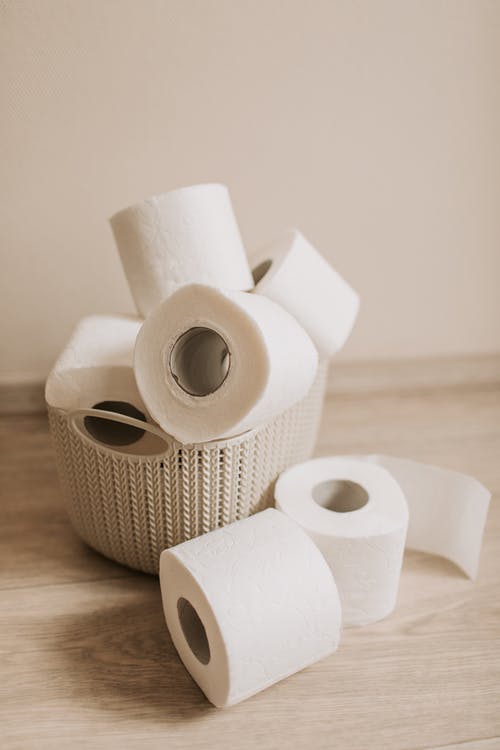Both children and adults can have bouts with diarrhea, but the little ones are particularly vulnerable to more severe symptoms like dehydration.
Thus, it is essential that parents learn everything there is to know about diarrhea in children. To help you begin, here are the four most crucial information about children’s diarrhea:
1. Why does diarrhea occur in children?
Children’s diarrhea can be caused by a lot of things, from environmental factors to their diet. It is important to learn these triggers because diarrhea treatment may vary based on the cause of the condition.
Infections
Infection is deemed as the most common cause of diarrhea. This can be bacterial, like salmonella infection, or viral due to rotavirus and other viruses. It can also be a result of a parasitic infection like giardiasis, though this happens very rarely.
Most children’s diarrhea from infections is due to viruses. A common example is viral gastroenteritis, which comes with the following symptoms:
- Soft or watery stools
- Vomiting
- Stomachache
- Headache
- Fever
Medication
Some medications can also cause diarrhea in both children and adults. This includes laxatives and antibiotics.
Laxatives work to loosen stools and hasten the bowel movement in case of constipation. On the other hand, antibiotics can cause imbalance in the gut microbiota where good and bad bacteria thrive.
If you believe antibiotics are what triggered a child’s diarrhea, don’t just stop the medication. Instead, talk to your doctor about it.
If it’s mild, you only need to keep the child hydrated. Your doctor may also recommend the following:
- Reduced antibiotic dose
- Dietary changes
- Antibiotic replacement
- Use of probiotics for babies
Food Poisoning
Occasionally, children may put something in their mouth that isn’t meant to be ingested or has gone past their freshness date. When this happens, the body rejects anything it deems unsafe in the form of diarrhea.
Diarrhea due to food poisoning usually comes on almost immediately. Its symptoms may also include vomiting, but they usually pass within 24 hours.
Underlying Medical Conditions
Medical conditions can also cause diarrhea. Some of the most common ones are:
- Irritable bowel disease
- Crohn’s disease
- Ulcerative colitis
- Food allergies
- Celiac disease
Knowing the cause of diarrhea may be difficult. If you’re not sure what led to your child’s LBM, consult his pediatrician right away.
2. How to know if a child has diarrhea?
Look out for the following symptoms to confirm if a child has diarrhea:
- Soft, loose, and/or watery stools
- Stomach cramps
- Abdominal pain
- Fever
- Blood or mucus in the stool
- Nausea and vomiting
- Bloating
- Uncontrollable urge to go to the bathroom
Take note that younger children, especially babies, may not be able to express what they are feeling. This means it’s up to their parents to watch out for the signs listed above.
More severe symptoms, such as high fever (above 102 degrees Fahrenheit), bloody or black stools, and dehydration, might warrant a visit to the doctor’s clinic.
Dehydration is particularly worrisome because of the dangers it poses to children. If dehydrated, a child can experience dangerous complications such as brain damage, seizures, and even death.
Signs of dehydration include:
- Extreme thirst
- Less urine compared to the usual amount (the diaper is dry within three hours or more)
- Weakness or lack of energy
- Mouth dryness
- Lack of tears when crying
- Lower skin turgor (i.e., less bounce than usual on the child’s skin when pinched and released)
- Sunken cheeks, eyes, or soft spot in the skull
3. What do you give a child with diarrhea?
Diet changes have been found to help ease the discomfort children experience with diarrhea. Some foods were also found to aid in diarrhea recovery, such as:
- Applesauce
- Broiled or baked pork, beef, fish, chicken, or turkey
- Bananas and other fresh fruits
- Cooked eggs
- Bread and bread-like products made using white flour (refined)
- White rice or pasta
- Cooked vegetables, especially acorn squash, green beans, asparagus tips, carrots, beets, mushrooms, and peeled zucchini
- Select desserts, like popsicles, Jell-O, cookies, sherbet, or cakes
- Baked potatoes
Some studies also support the benefits of yogurt that contain live culture (or probiotics) in easing diarrhea brought about by antibiotic intake. These replenish good bacteria that were killed from the antibiotics course, restoring balance in the gut flora.
Take note: Stop consumption of dairy products for a few days if the child shows worse symptoms of diarrhea or if it causes bloating and gas.
4. What can stop diarrhea fast?
Stopping diarrhea in adults usually entails taking anti-diarrheal medication that contains bismuth subsalicylate or loperamide. However, these medications may not always be recommended for kids.
Experts recommend letting diarrhea run its course, particularly in cases that only last less than 24 hours. But if it takes longer, parents may try the following diarrhea remedies for kids:
Probiotics
Probiotics for kids are known to help stop diarrhea caused by an imbalance in gut bacteria. As mentioned earlier, probiotics are effective in restoring balance by replenishing lost good bacteria. This will then promote normal bowel function, thereby shortening the course of diarrhea.
Rice Water
Boil a cup of rice in two cups of water for ten minutes or until the water becomes cloudy. Remove the rice through straining and preserve the water for drinking.
This quick diarrhea remedy is known to have a binding effect once it’s in the digestive tract, which results in firmer stools. As a bonus, it also aids in rehydration and helps prevent dehydration or fluid loss.
Antibiotics
While some diarrhea cases are due to antibiotics, those caused by bacterial infection may require the use of some form of antibiotic medication. This usually happens when a child comes in contact with contaminated water or food, which usually occurs during trips.
Remember that antibiotics don’t work on viral infections. If this is the cause, you need to let diarrhea run its course.
Also, never administer antibiotics without consulting a doctor first.
Help Children Overcome Diarrhea
Children need all the help they can get when experiencing bouts with diarrhea. Learn everything there is to know about the ailment to understand what it takes to stop it.

